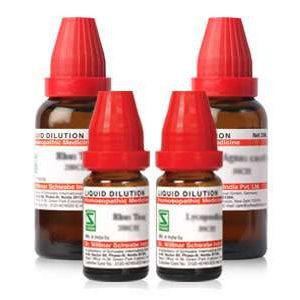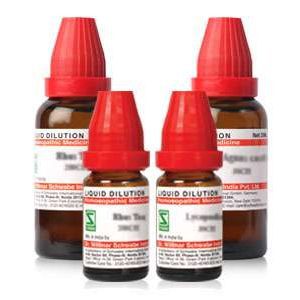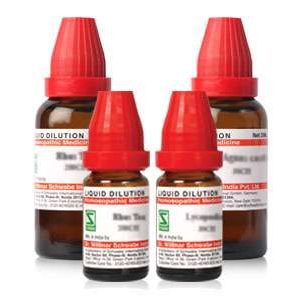
Stop Hiding Your White Hair and Try These Homeopathic Remedies Today
- Dr. P T Ponmani
- July 3, 2023
- No Comments

Gray or white hair is a natural part of the aging process. As we age, the pigmentation cells in our hair follicles gradually decrease, leading to the loss of color and the appearance of gray or white hair. However, other factors can contribute to premature graying or white hair development.
Causes of white hair
- Genetics: Genetics is the most significant factor in determining when your hair will turn gray. If your parents or grandparents experienced premature graying, there’s a higher chance that you may also develop gray or white hair at an earlier age.
- Age: As mentioned earlier, aging is the primary cause of gray or white hair. It usually starts to appear in your 30s or 40s, but the timing can vary among individuals.
- Ethnicity: The onset of gray or white hair can be influenced by race. People of European descent tend to start graying in their 30s, while individuals with Asian or African ancestry may experience it in their 40s.
- Stress: Although not scientifically proven, there is a belief that stress can contribute to the premature graying of hair. Chronic stress and emotional trauma may accelerate the aging process, including the loss of hair pigmentation.
- Medical problems: Certain medical conditions can lead to premature graying. These include thyroid disorders, vitiligo (a skin condition that causes the loss of skin color), alopecia areata (an autoimmune disease causing hair loss), and Werner syndrome (a genetic disorder associated with premature aging).
- Lifestyle Factors: Poor nutrition, smoking, and exposure to environmental toxins can contribute to premature graying. A deficiency in specific vitamins and minerals, particularly vitamin B12 and folic acid, can affect melanin production and lead to early graying.
Symptoms:
- The main symptom of premature graying is the appearance of gray or white hair before the expected age. This can happen to any hair on the body, including the scalp, eyebrows, eyelashes, and facial hair. Premature graying may occur gradually or suddenly, affecting both men and women.
Also Read Five Ways To Deal With Dandruff, Hair Fall!
Management of white hair
While it is not possible to reverse gray or white hair completely, there are a few options available to manage the appearance:
- Hair Dyes: Coloring the hair is the most common way to cover gray or white hair. Various hair dye products available can provide temporary or permanent color to the hair.
- Highlights or Lowlights: Additional highlights or lowlights to the hair can create dimension and blend the gray or white strands with your natural hair color, making the transition less noticeable.
- Embracing the Natural Look: Some people embrace their gray or white hair and wear it proudly. It can be a fashionable choice that embraces the natural aging process.
It’s important to note that no scientifically proven home remedies or supplements prevent or reverse gray or white hair. In addition, while specific lifestyle changes, such as maintaining a healthy diet, managing stress levels, and avoiding smoking, may promote overall hair health, they may not halt the graying process.
Suppose you are concerned about premature graying or have questions about your hair health. In such case, it is advisable to consult with a dermatologist or trichologist (hair specialist) who can provide individualised advice and guidance based on your specific situation.
Homeopathic treatment for premature graying of hair
Premature graying of hair refers to the loss of natural hair color before the age at which it is considered normal. It can cause concern for individuals, as it can affect their appearance and make them feel self-conscious. Here is some information about premature graying, its symptoms, and homeopathic medicines that may be considered:
Homeopathic Medicines for White Hair:
Homeopathic medicines are chosen based on individual symptoms, constitution, and overall health. Hence, it is advisable to consult with a professional homeopath for a proper evaluation and personalized treatment. Here are some commonly used homeopathic medicines for premature graying:
- Lycopodium clavatum: This medicine is often recommended for premature graying accompanied by hair fall. It is suitable for individuals who are prone to develop gray hair on the sides or temples.
- Phosphoric acid: Phosphoric acid is indicated when premature graying is associated with grief, emotional stress, or illness. It may be recommended for individuals who experience gray hair due to long-standing mental or physical exhaustion.
- Phosphorus: Phosphorus is used when graying occurs in patches or streaks. It is indicated for people of sensitive nature.
- Natrum muriaticum: Natrum muriaticum is considered when graying is associated with grief, emotional stress, or suppressed emotions. It is often prescribed for individuals with a reserved and sensitive personality.
- Pulsatilla nigricans: Pulsatilla is recommended for individuals with a mild and yielding temperament. It may be chosen when graying is accompanied by dryness or itching of the scalp.
-
 Dr Willmar Schwabe India Phosphorus CHSale Product on sale
Dr Willmar Schwabe India Phosphorus CHSale Product on sale₹105.00₹86.10 -
 Dr Willmar Schwabe India Natrum muriaticum CHSale Product on sale
Dr Willmar Schwabe India Natrum muriaticum CHSale Product on sale₹105.00₹86.10 -
 Dr Willmar Schwabe India Lycopodium clavatum CHSale Product on sale
Dr Willmar Schwabe India Lycopodium clavatum CHSale Product on sale₹105.00₹86.10Rated 4.50 out of 5 based on 2 customer ratings -
 Dr Willmar Schwabe India Acidum phosphoricum CHSale Product on sale
Dr Willmar Schwabe India Acidum phosphoricum CHSale Product on sale₹105.00₹86.10Rated 5.00 out of 5 based on 1 customer rating
It’s important to remember that homeopathic treatment is individualized, and selecting the most appropriate remedy depends on a thorough assessment of the person’s symptoms and overall health. Therefore, consulting with a professional homeopath is crucial to receive personalized advice and proper treatment.
In addition to that, maintaining a healthy lifestyle, including a balanced diet rich in vitamins and minerals, managing stress levels, and avoiding excessive use of chemicals on the hair, may help promote overall hair health.
Prevention of Premature Graying of Hair:
While it is impossible to reverse or prevent premature graying of hair completely, you can take some actions to delay its onset or slow down the progression. Here are some preventive measures:
- Maintain a nutritious diet: Ensure your diet includes foods rich in vitamins, minerals, and antioxidants. Include fruits, vegetables, whole grains, lean proteins, and healthy fats to provide essential nutrients for hair health.
- Avoid smoking: Smoking has been linked to premature graying. Quitting smoking or avoiding exposure to secondhand smoking can help reduce the risk.
- Managing stress levels: Chronic stress can contribute to premature graying. Incorporate stress-management techniques like exercise, meditation, deep breathing, or engaging in activities you enjoy to help reduce stress levels.
- Protect hair from environmental damage: Minimize exposure to environmental factors that can damage hair, such as harsh sunlight, pollution, and chemicals. Wear hats or use protective hair products when necessary.
- Avoid overuse of hair styling tools: Heat-styling tools such as hair straighteners, curling irons, and blow dryers can damage hair and potentially contribute to premature graying. Limit their use and apply heat-protectant products when styling.
- Take care of the scalp: Keep your scalp clean and healthy by regularly washing it with mild shampoo and conditioner. Avoid harsh chemicals and excessive scratching or pulling of hair.
- Regular hair care routine: Maintain a normal hair care routine, including regular trims to prevent split ends, gentle brushing, and avoiding tight hairstyles that can cause hair breakage.
Conclusion:
Premature graying of hair can be a source of concern and affect one’s self-esteem. While the exact cause of premature graying is not fully understood, a combination of genetic, environmental, and lifestyle factors may play a role. While there are no guaranteed preventive measures, following a healthy lifestyle, managing stress, and caring for your hair and scalp can delay the onset or slow the progression of premature graying.
It’s important to remember that various factors influence hair color, and premature graying is a natural part of aging process for many individuals. Embracing one’s natural hair color, including gray or white strands, can be a confident and empowering choice. However, suppose you have concerns about premature graying or its impact on your well-being. In that case, it’s always advisable to consult a dermatologist or trichologist who can provide personalized advice and guidance based on your situation.

































